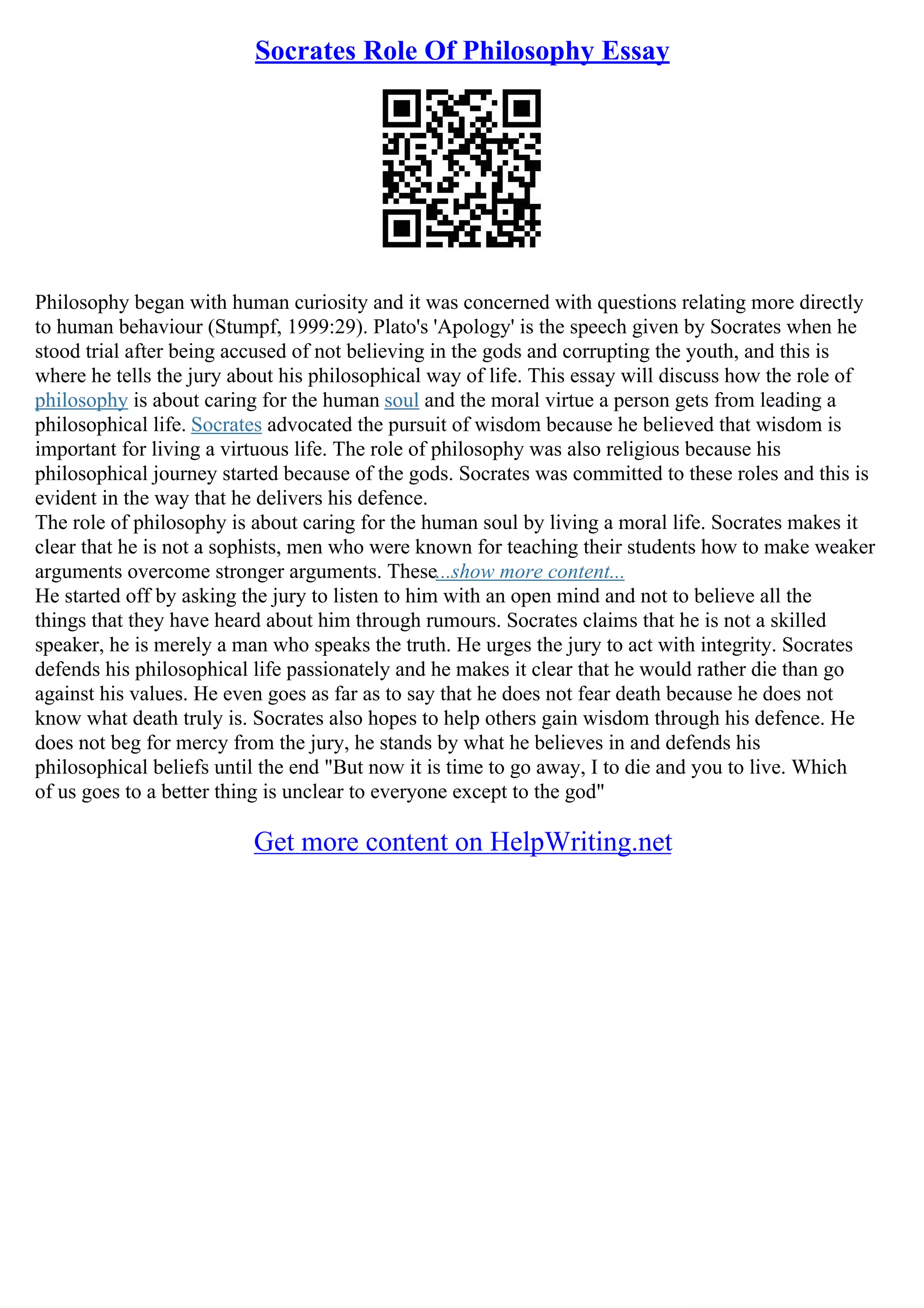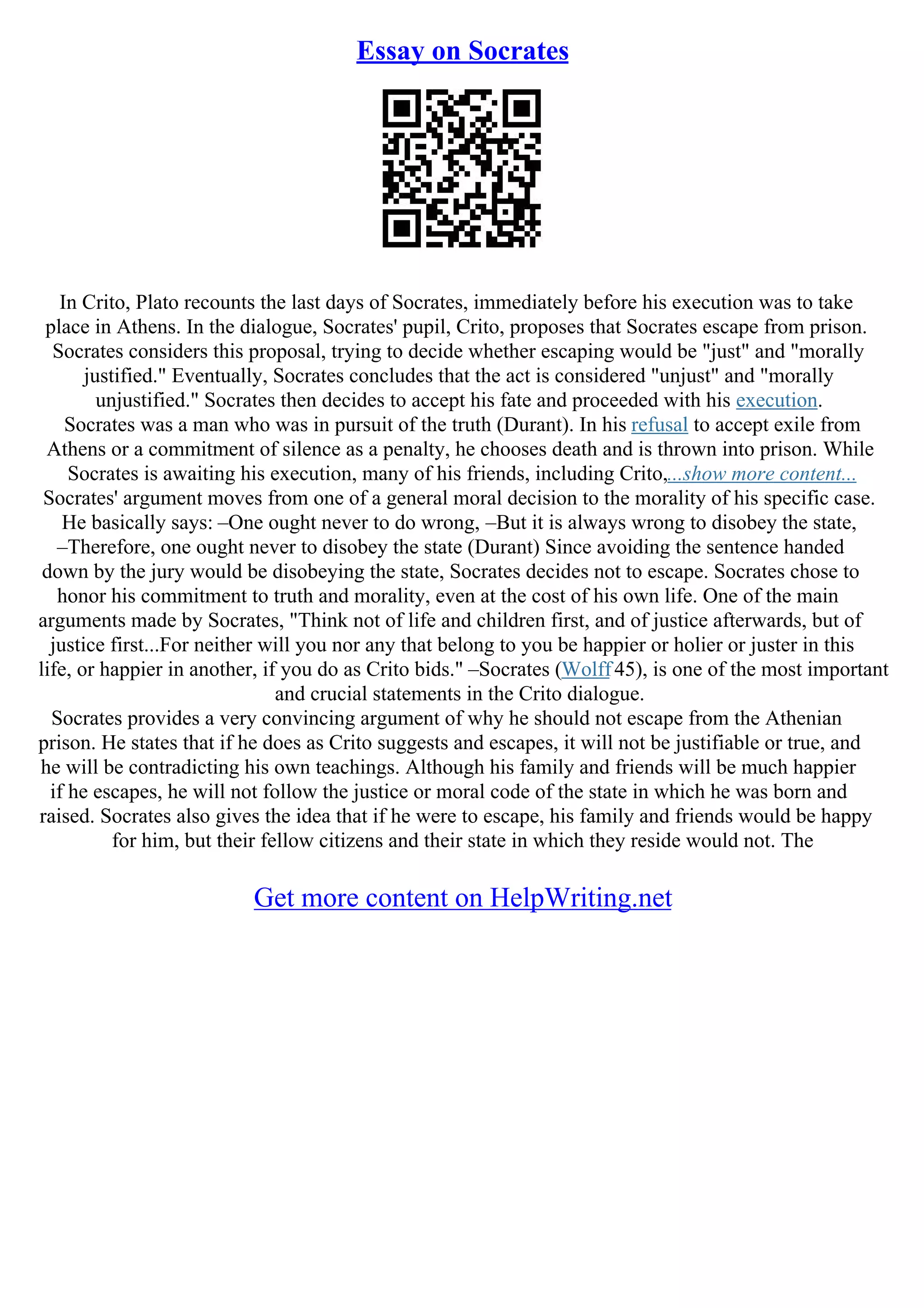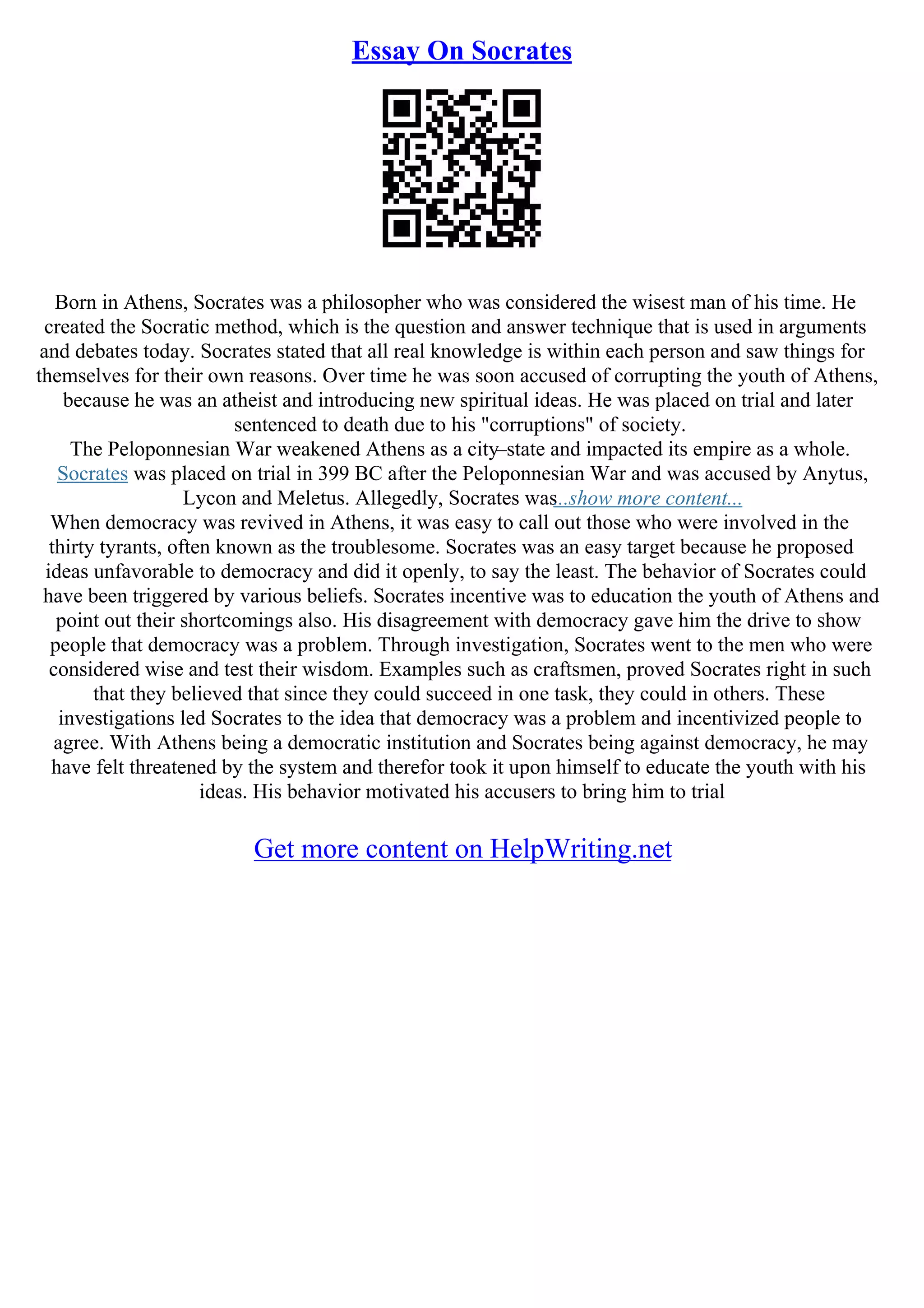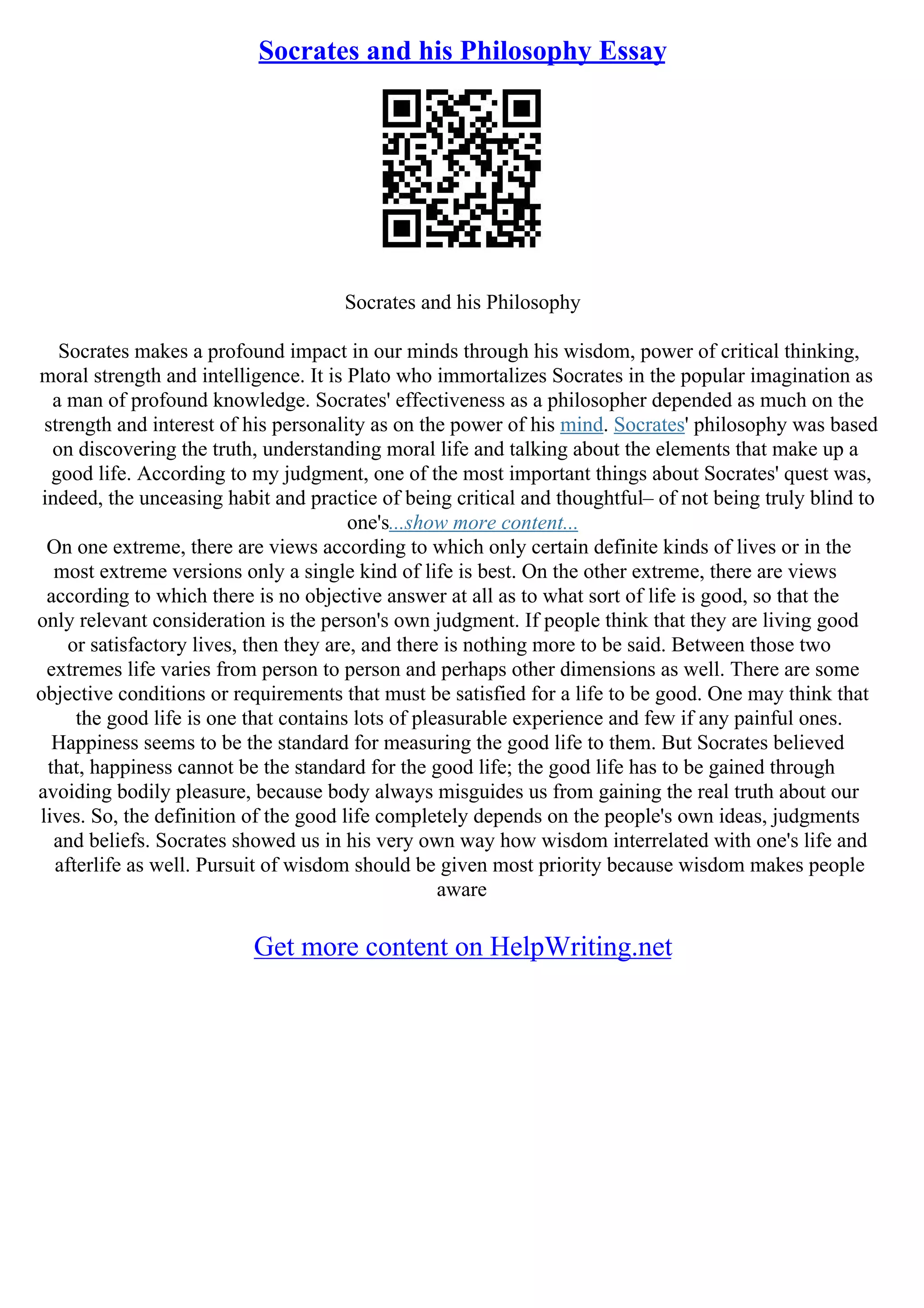This document discusses Socrates' role in philosophy, emphasizing his belief that true happiness and virtue stem from understanding oneself and living a moral life. It highlights key aspects of his trial, defense, and execution, illustrating how his pursuit of wisdom and questioning of societal beliefs led to his condemnation. Additionally, it contrasts Socrates' teachings with those of his student Plato, noting their contributions to Western philosophy, particularly in ethics and the nature of knowledge.




![Socrates Essay
SOCRATES Socrates was a Greek philosopher who lived between 470–399 B.C. He turned Greek
attention toward questions of ethics and virtue and away from those of the heavenly bodies. Socrates
spent much time in the Agora (marketplace) where he held conversations with townspeople. Socrates
believed that real truth could be found out through thought and collaboration with others. He was
known for exposing ignorance, hypocrisy, and conceit. Despite having many followers, Socrates was
disliked by most Athenians. At the age of 70, he was convicted of atheism, treason and corruption of
the young. He was originally ordered to leave Athens, but chose to drink poison instead. This great
man valued the law over his life, and so he chose to drank...show more content...
But after Athens lost her empire by losing the Peloponnesian War and had undergone two oligarchic
reigns of terror at the hands of the gilded, Socratified rich kids, her patience with Socrates ended.
Socrates was charged in 399 B.C. with "impiety against the gods of the city" and with
"corrupting the young." He was guilty on all counts. Socrates' basic premise of
government –– according to Xenophon's "Memorabilia" –– was "that it is the
business of the ruler to give orders and of the ruled to obey." So the ruler should have total,
unaccounted power. The second charge against Socrates, that he had corrupted the youth of Athens,
was even more damning. The foremost examples of the gilded youth he led astray was Alcibiades
and Critias, although Socrates' effect on the rich young aristocratic fops was already mentioned in
Aristophanes' "The Birds," written in 414 B.C., fifteen years before he was called to
account: Why, till ye built this city in the air, _____ line 1280 All men had gone Laconian–mad;
they went __ [Spartan–mad] Long–haired, half–starved, unwashed, Socratified, With scytales in their
hands; but Oh the change! They are all bird–mad now, and imitate ____ line 1284 Alcibiades was
Socrates' favorite pupil. Socrates saved his life on a battlefield. But the lesson Alcibiades learned
from Socrates was that the rulers have no duty to their country; that their
Get more content on HelpWriting.net](https://image.slidesharecdn.com/essayonsocrates-230609160034-d232d952/75/Essay-On-Socrates-5-2048.jpg)














